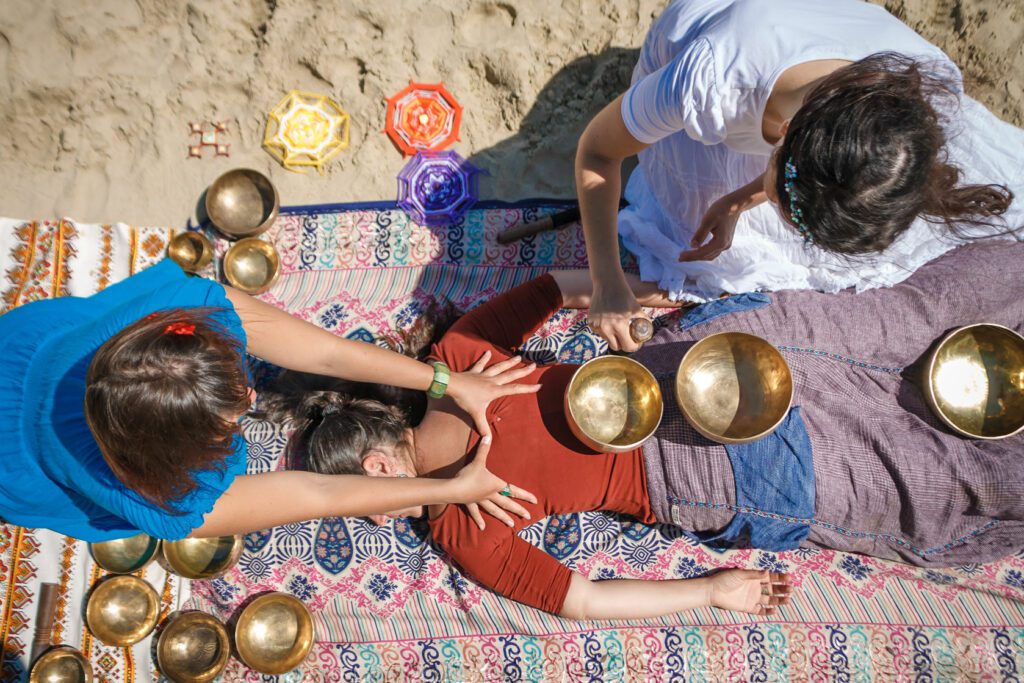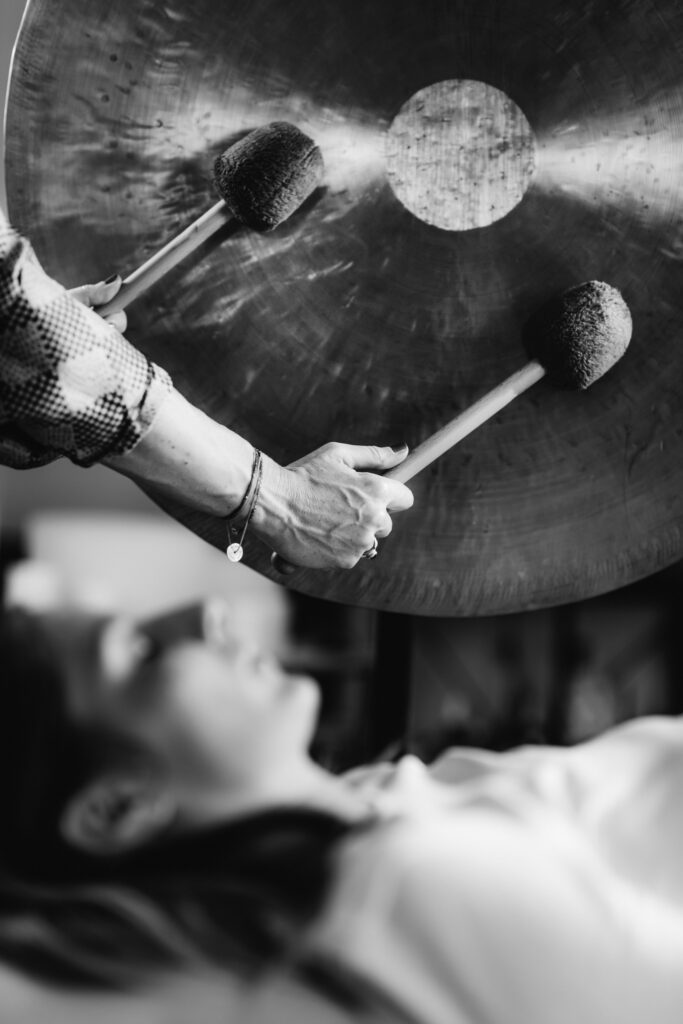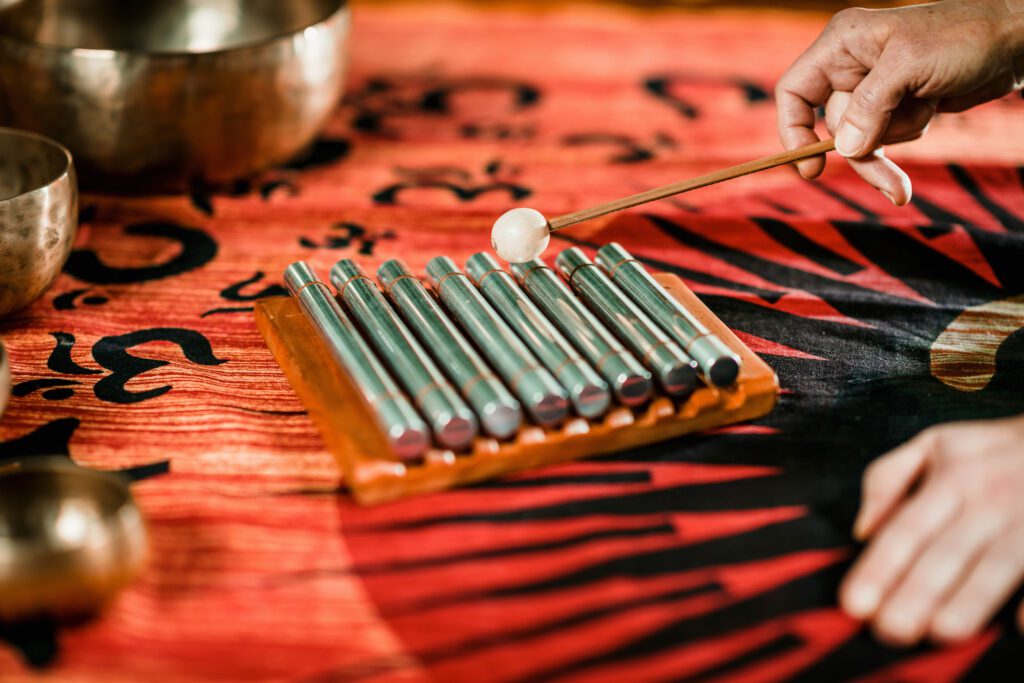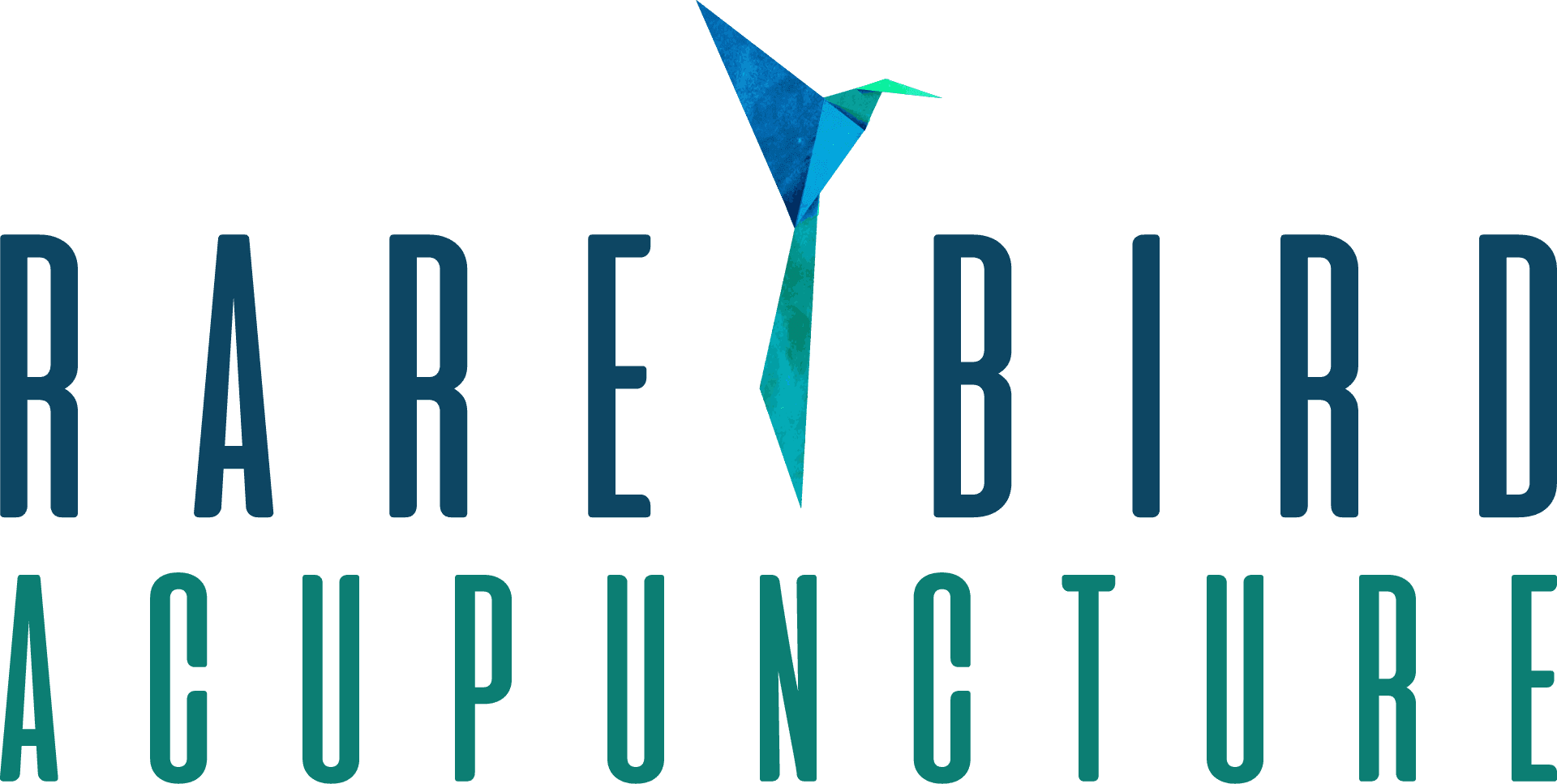
Since the dawn of time, human beings have had an impulse to make music and have used music to heal and achieve specific states. At a time when the only sounds were from the natural environment, the music of nature was intrinsically woven within both the human physical and energetic fields.
Therapeutic uses of music date back to antiquity. Healing shrines in Ancient Greece housed both hymn specialists and physicians. Native American tribes chant, dance, and play drums to heal illnesses. Tibetan singing bowls are used for healing and meditation purposes. Early Christian priests used hymns to ease pain in the sick.
Today, scientific studies confirm what the ancients seemed to know inherently: that music can be medicinal. As researchers continue to catch up to what we have instinctively known all along, their work to perfect the use of music as medicine using existing platforms such as brainwave EEG feedback is used to improve various aspects of health. The type of music selected in therapy is crucial to success, as specific intensities and frequencies trigger different emotions and brainwaves in each patient.
As you may already know, my acupuncture treatments consist of the use of different types of tools along with acupuncture needles. I also use a vibrational sound healing system in the form of tuning forks. By applying sound to the physical body at specific acupuncture points on the vast meridian system, I open the energetic pathways where your Qi, or natural life force, flows.
As a result, energy blocks are removed, increasing the flow of Qi and facilitating homeostasis, through which profound healing begins. The range of sound created restores vibratory frequencies, and out-of-harmony parts of the body, mind, and soul are brought back into balance.
When a sick man is “nourished” by the right kind of sounds, the cells in his body start to vibrate and reorganize themselves according to their divine blueprint.
What Is Music Therapy?

Today, music therapy aims to influence both emotion and physiology. Music therapy is an established allied healthcare profession. Treatment techniques are designed to achieve functional changes in mood, brain, and behavior.
Imaging Studies: The Brain Dances to Music
Music modifies brainwaves, a phenomenon that can be seen through functional MRI patterns of activity in the nucleus accumbens and auditory cortices, indicating whether a person enjoys a particular piece of music or not. Another area of the brain, the superior temporal gyrus, serves as a music-recommendation system that helps people make choices about the music they want to listen to and purchase.
Reducing Blood Pressure
Music can influence blood pressure in both directions, based on speed and personal perceptions. One study exposed patients with essential hypertension to 30 minutes of Beethoven’s violin concerto Op. 61, second movement (Larghetto). The results showed that both systolic and diastolic blood pressure were lowered significantly.
Music and Learning
Music can be used to reach specific cognitive states. Brainwave oscillations can be synchronized with music to achieve a desired state, such as relaxation, reduced pain, sleep, contentment, and others.
Music and Autism
Research suggests that music can improve communication, behavior, cognition, social interactions, and emotional regulation in those on the autism spectrum. It appears to do so by stimulating both hemispheres of the brain, organizing the sensory system, and increasing perceptual motor skills.
Music As Sleep Medicine
Music has proven to be highly effective in improving sleep hygiene. One study showed improved sleep in elderly participants over three months from listening to slow, sedative music every night. Areas of improvement included sleep latency and efficiency, as well as daytime function. Similar studies have shown fewer interruptions in sleep patterns and prolonged REM sleep in adults with insomnia.

Depression and Anxiety
Music releases mood-enhancing chemicals into the body, including dopamine and endorphins. Mozart’s music, in particular, has been shown to promote dopaminergic neurotransmission. Music is consistently successful in treating anhedonia.
Music in Pain Management
Music can be an important tool in chronic pain management. One meta-analysis found that soothing, slow, patient-selected music alleviated a wide variety of pain, including ophthalmologic, urologic, gynecologic, cardiac, and surgical, as measured by significantly reduced pain scores, decreased use of analgesics, and improved vital signs, such as lower cortisol or blood glucose levels.
Music and Social Health
Active engagement with music raises IQ and can influence other processing systems, including mother skills, language, intellectual development, and perceptual cognition. Learning and playing an instrument creates a sense of achievement and builds self-esteem, self-discipline, and social and teamwork skills.
Music’s Influence on Mental State and Mood
Music as a mood modulator is familiar to most people, but it also influences each person in very different ways, based on the personal history of listening to and playing music, as well as individual sensitivity, receptivity, and age. Overall, music has a powerful and expedient impact on mood, outlook, motivational levels, and disposition.
Music and Dementia Patients
Recent studies have documented the positive effect that music has on dementia patients. Some scientists hypothesize that music regenerates or stimulates several areas of the brain while slowing down neurodegeneration. Patient choice of music yields the best results, and selections that include vocals tend to show the most promise in dementia treatment.
*Scientific research data was gathered from Medscape Inc. Medscape is a website that provides access to medical information for clinicians and also provides continuing education for physicians and health professionals.
“Music gives Alzheimer’s patients a sense of power and ownership. They can’t follow life. They can’t follow conversations. They don’t remember people. They get lost. They get confused. They’ve lost working memory. But because the part of the brain that internalizes music and marks rhythm is particularly very healthy in Alzheimer’s patients, they can follow music and remember it, and that makes them feel in control. They’re very keen listeners.”
— Linda Maguire
Opera Singer-Turned Neuroscientist Uses Music as Medicine for Dementia, Autism, and More by Conan Milner, Epoch Times, November 26, 2015
Linda Maguire is an internationally renowned musician with a red-carpet career spanning 23 years. Maguire is still performing, but in the last few years, she has turned her musical talents toward a new theme: healing.
There is no cure for Alzheimer’s, and after decades of research, no drugmaker has been able to create anything very effective in slowing the mental deterioration characteristic of the disease. However, after four months of Maguire’s singing regimen, test subjects demonstrated remarkable improvements in cognition. Follow the link above to read more about this incredible work.
